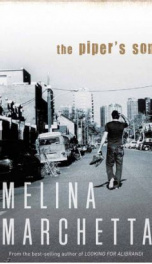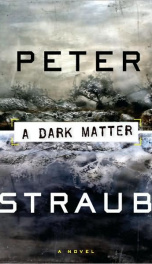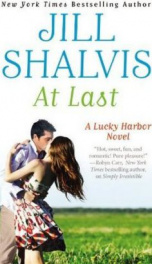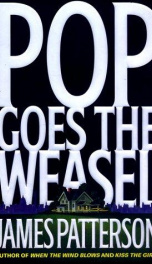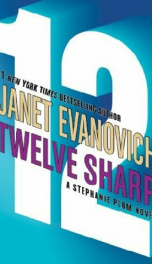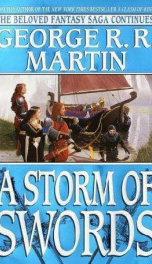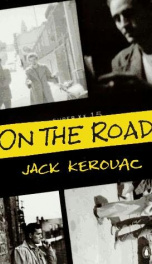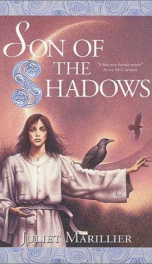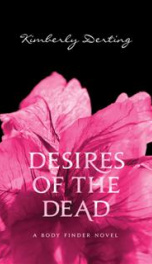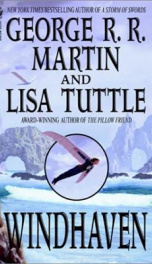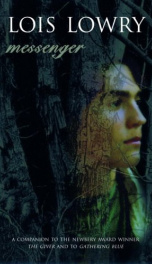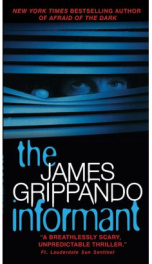West Rebecca

Cicely Isabel Fairfield (21 December 1892-15 March 1983), known by her pen name Rebecca West, or Dame Rebecca West, DBE was an English author, journalist, literary critic and travel writer. A prolific, protean author who wrote in many genres, West was committed to feminist and liberal principles and was one of the foremost public intellectuals of the twentieth century. She reviewed books for The Times, the New York Herald Tribune, the Sunday Telegraph, and the New Republic, and she was a correspondent for The Bookman. Her major works include Black Lamb and Grey Falcon (1941), on the history and culture of Yugoslavia; A Train of Powder (1955), her coverage of the Nuremberg trials, published originally in The New Yorker; The Meaning of Treason, later The New Meaning of Treason, a study of World War II and Communist traitors; The Return of the Soldier, a modernist World War I novel; and the "Aubrey trilogy" of autobiographical novels, The Fountain Overflows, This Real Night, and Cousin Rosamund. Time called her "indisputably the world's number one woman writer" in 1947. She was made CBE in 1949, and DBE in 1959, in recognition of her outstanding contributions to British letters. Rebecca West was born Cicely Isabel Fairfield in 1892 in London and grew up in a home full of intellectual stimulation, political debate, lively company, books, and music.[1] Her mother, Isabella, a Scotswoman, was an accomplished pianist but did not pursue a musical career after her marriage to Charles Fairfield. Charles, an Anglo-Irish journalist of considerable reputation but financial incompetence, deserted his family when Cicely was 8 years old. He never rejoined them and died impoverished and alone in a boarding house in Liverpool in 1906, when Cicely was 14.[2] The rest of the family moved to Edinburgh, Scotland, where Cicely was educated at George Watson's Ladies College. She had to leave school in 1907 due to a bout of tuberculosis.[3] Cicely did not have any formal schooling after the age of 16, due to lack of funds. She had two older sisters. Letitia ("Lettie"), who was the better educated of the three, became one of the first fully-qualified female doctors in Britain, as well as a barrister at the Inns of Court. Winifred ("Winnie"), the middle sister, married Norman Macleod, Principal Assistant Secretary in the Admiralty, and eventually director general of Greenwich Hospital. Winnie's two children, Alison and Norman, became closely involved in Rebecca's life as she got older;[4] Alison Macleod would achieve a literary career of her own [5]. West trained as an actress in London, taking the name 'Rebecca West' from the heroine in Rosmersholm by Henrik Ibsen. She and Lettie became involved in the women's suffrage movement, participating in street protests. Meanwhile, West worked as a journalist on Freewoman and the Clarion, drumming up support for the suffragette cause. She met H. G. Wells in 1913, after her provocatively damning review of his novel Marriage prompted him to invite her to lunch. They fell in love, though Wells was still in his second marriage at the time, and their affair lasted ten years, producing a son, Anthony West. West is also said to have had affairs with Charlie Chaplin and newspaper magnate Lord Beaverbrook.[6] West established her reputation as a savage and eloquent spokesperson for feminist and socialist causes and as a sharp-witted critic, turning out a staggering number of essays and reviews for The New Republic, The New York Herald Tribune, The New York American, The New Statesman, The Daily Telegraph, and many more newspapers and magazines. George Bernard Shaw said in 1916 that "Rebecca West could handle a pen as brilliantly as ever I could and much more savagely."[7] During the 1920s, West began a lifelong habit of visits to the U.S. to give lectures, meet artists, and get involved in the political scene. There, she befriended CIA founder Allen Dulles, Charlie Chaplin, Harold Ross of The New Yorker , and historian Arthur Schlesinger, Jr., among many other significant figures of the day. Her lifelong fascination with the United States culminated in 1948 when President Truman presented her with the Women's Press Club Award for Journalism, calling her "the world's best reporter."[8] In 1930, at the age of 37, she married a banker, Henry Maxwell Andrews, and they remained together until his death in 1968. West's writing brought her considerable wealth, and by 1940 she owned a Rolls Royce and a grand country estate, Ibstone House, in the Chiltern Hills of southern England. It is testament to her financial savvy that both the Rolls and the country estate were acquired for a fraction of their worth from insolvent owners. During World War II, West housed Yugoslav refugees in the spare rooms of her blacked-out manor, and she used the grounds as a small dairy farm and vegetable plot, agricultural pursuits that continued long after the war had ended. As West grew older, she turned to broader political and social issues, including humankind's propensity to inflict violent injustice on itself. Before and during World War II, West traveled widely, collecting material for books on travel and politics. In 1936-38, she made three trips to Yugoslavia, a country she came to love, seeing it as the nexus of European history since the late Middle Ages. Her non-fiction masterpiece, Black Lamb and Grey Falcon is an amalgamation of her impressions from these trips. New York Times reviewer Katherine Woods wrote: "In two almost incredibly full-packed volumes one of the most gifted and searching of modern English novelists and critics has produced not only the magnification and intensification of the travel book form, but, one may say, its apotheosis." West was assigned by Ross' magazine to cover the Nuremberg Trials for The New Yorker, an experience she memorialized in the book A Train of Powder. She also went to South Africa in 1960 to report on Apartheid in a series of articles for the Sunday Times. She traveled extensively well into old age. In 1966 and 1969, she undertook two long journeys to Mexico, becoming fascinated by the indigenous culture of the country and its mestizo population. She stayed with actor Romney Brent in Mexico City and with Katherine (Kit) Wright, a long-time friend, in Cuernavaca.[9] She collected a large number of travel impressions and wrote tens of thousands of words for a "follow-up" volume to Black Lamb and Grey Falcon, tentatively titled "Survivors in Mexico." The work, however, was never finished, and only saw publication posthumously in 2003. Even into her late 70s, she visited Lebanon, Venice, Monte Carlo, and always went back to the United States. After her husband's death in 1968, West moved to London, where she bought a spacious apartment overlooking Hyde Park. (Unfortunately, it was next door to the Iranian embassy. During the May 1980 incident, West, then 87, had to be evacuated[10]). In the last two decades of her life, West kept up a very active social life, making friends with Martha Gellhorn, Doris Lessing, Bernard Levin, comedian Frankie Howerd, and film star and director Warren Beatty, who filmed her for the movie Reds, a biography of journalist John Reed and his connection with the Russian Revolution. She also spent time with scholars such as Jane Marcus and Bonnie Kime Scott, who began to chronicle her feminist career and varied work.[11] She wrote at an unabated pace, penning masterful reviews for the Sunday Telegraph, publishing her last novel The Birds Fall Down (1966), and overseeing the film version of the story by BBC in 1978. The last work published in her lifetime was 1900 (1982). 1900 explored the last year of Queen Victoria's long reign, which was a watershed in many cultural and political respects. At the same time, West worked on sequels to her autobiographically inspired novel The Fountain Overflows (1957); although she had written the equivalent of two more novels for the planned trilogy, she was never satisfied with the sequels and did not publish them. She also tinkered at great length with an autobiography, without coming to closure, and she started scores of stories without finishing them. Much of her work from the late phase of her life was published posthumously, including Family Memories (1987), This Real Night (1984), Cousin Rosamund (1985), The Only Poet (1992), and Survivors in Mexico (2003). Unfinished works from her early period, notably Sunflower (1986) and The Sentinel (2001) were also published after her death, so that her oeuvre was augmented by about one third by posthumous publications. West's relationship with her son, Anthony Panther West, was not a happy one. The rancor between them came to a head when Anthony, himself a gifted writer, his father's biographer (H. G. Wells: Aspects of a Life [1984]), and a novelist of some repute, published Heritage (1955), a fictionalized autobiography. West never forgave her son for depicting in Heritage the relationship between an illegitimate son and his two world-famous, unmarried parents, and for portraying the mother in unflattering terms. Essentially, she felt, Anthony was airing in public his accusations against her as a bad mother, which stemmed partly from the fact that she had made a fiction of his provenance - asking him to call her Auntie, and his father Wellsie, until he was about four or five, and partly from her habit of leaving him in institutions in his early years while she developed her career in the United States. West countered by claiming that she spent as much time with him as any child could reasonably hope to spend with a mother who was a professional. She was exasperated at his focus on her parenting, when he did not accuse his father of abandonment, even though Wells had been even more absent during Anthony's youth. Anthony, in fact, idolized Wells. The depiction of West's alter ego in Heritage as a deceitful, unloving actress (West had trained as an actress in her youth) and poor caregiver so wounded West that she broke off relations with her son and threatened to sue any publisher who would bring out Heritage in England. She successfully suppressed an English edition of the novel, which was only published there after her death, in 1984. Although there were temporary rapprochements between her and Anthony, a state of alienation persisted between them, causing West grief until her dying hour. She fretted about her son's absence from her deathbed, but when asked whether he should be sent for, answered, "perhaps not, if he hates me so much".[12]
do you like this author?
What readers are saying
What do you think? Write your own comment on this book!
write a commentWhat readers are saying
What do you think? Write your own comment on this author!
write a commentBook list
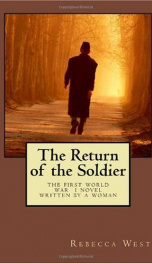
the return of the soldier
Series:
Unknown
Year:
Unknown
Raiting:
3.5/5
This is the best-known West’s novel. The story is told by a spinster whose whole life revolves around her cousin, his life and country mansion. This is the story of an English gentleman who goes off to World War I only to be returned not in a body bag or physically injured but with a severe case of amnesia. He does not recognize his pretty, smart wife; starts a youthful affair with a poor woman who is also married. The woman comes forth in the interest of helping him. The balance of the plot hangs in the consequences of recovery. The balance of the full experience of the novel is to watch characters changing or not changing their class prejudices and outlook in light of their experiences on this country estate. The novel is only 90 pages long, but it is as rich for exciting events as any other masterpiece of world’s literature. This story is wonderfully written and raises many themes, such as classism, elitism, true love and hate. Each character is fully developed and described. A book that should be read and discussed by everyone.
Show more
add to favoritesadd In favorites

henry james
Series:
Unknown
Year:
Unknown
Raiting:
3.5/5
One of the pioneer studies of the American expatriate novelist.THIS TITLE IS CITED AND RECOMMENDED BY: Catalogue of the Lamont Library, Harvard College. --This text refers to the Library Binding edition.
Show more
add to favoritesadd In favorites
Book list

the return of the soldier
Series:
Unknown
Year:
Unknown
Raiting:
3.5/5
This is the best-known West’s novel. The story is told by a spinster whose whole life revolves around her cousin, his life and country mansion. This is the story of an English gentleman who goes off to World War I only to be returned not in a body bag or physically injured but with a severe case of amnesia. He does not recognize his pretty, smart wife; starts a youthful affair with a poor woman who is also married. The woman comes forth in the interest of helping him. The balance of the plot hangs in the consequences of recovery. The balance of the full experience of the novel is to watch characters changing or not changing their class prejudices and outlook in light of their experiences on this country estate. The novel is only 90 pages long, but it is as rich for exciting events as any other masterpiece of world’s literature. This story is wonderfully written and raises many themes, such as classism, elitism, true love and hate. Each character is fully developed and described. A book that should be read and discussed by everyone.
Show more
add to favoritesadd In favorites

henry james
Series:
Unknown
Year:
Unknown
Raiting:
3.5/5
One of the pioneer studies of the American expatriate novelist.THIS TITLE IS CITED AND RECOMMENDED BY: Catalogue of the Lamont Library, Harvard College. --This text refers to the Library Binding edition.
Show more
add to favoritesadd In favorites
What readers are saying
What do you think? Write your own comment on this author!
write a commentif you like West Rebecca try:
readers also enjoyed
What readers are saying
What do you think? Write your own comment on this author!
write a commentGenre
if you like West Rebecca try:
readers also enjoyed
Do you want to exchange books? It’s EASY!
Get registered and find other users who want to give their favourite books to good hands!

